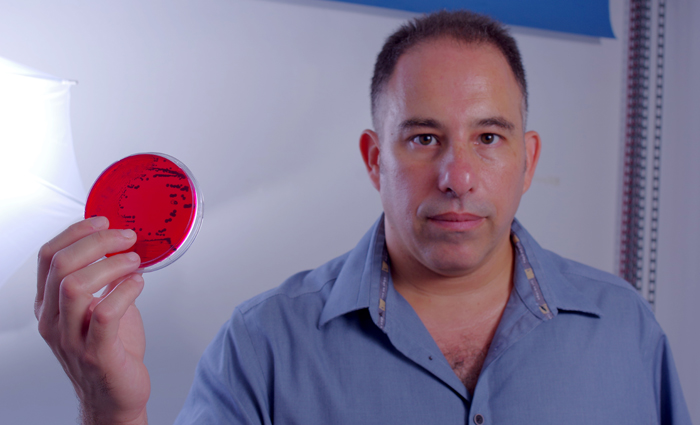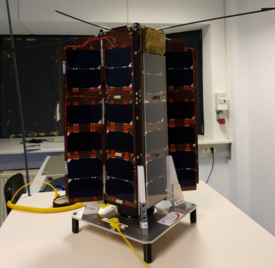Photo: Professor Ohad Gal-Mor (Photo Credit: Sheba Medical Center)
By Ben Horodenker
Israeli research teams from Sheba Medical Center, the Technion and Hebrew University made history Thursday morning, Sept. 3, when a SpacePharma microsatellite lab was launched into space aboard an Arianespace Vega rocket from French Guiana.
Sheba’s experiment is facilitated through SpacePharma’s microsatellite lab in conjunction with the European Space Agency, Israel Space Agency and Italian Space Agency. Underwriting is provided by the Italian Ministry of Foreign Affairs and Israel’s Ministry of Science and Technology.

The Vega rocket with the microsatellite lab launched from the Spaceport in French Guiana. Photo Credit: Arianespace
The researchers, from Sheba’s Unit of Infectious Diseases, seek to test their hypothesis that the near-zero gravity in space can affect the acquisition of antibiotic resistance in bacteria, considered a growing global threat.
buy zocor online
Looking ahead to when space tourism will become a reality, Sheba’s experiment will also help to calculate the risks of antibiotic-resistant infectious diseases in humans traveling to space.
The more immediate goal, though is to discover new treatments and approaches to solve what many describe as a global ticking time bomb. According to the UN’s World Health Organization, bacterial resistance to antibiotics is currently responsible for the deaths of 700,000 people annually – a number that by 2050 could rise to 10 million if trends continue unchecked.
Professor Ohad Gal-Mor, director of the Infectious Diseases Research Laboratory at Sheba and head of the space experiment, explains that there is a significant overuse and misuse of antibiotics all over the world. It’s a well-known scenario where patients with common ailments demand medication for a “quick fix,” while the physicians themselves, due to lack of time, resources, or both, fail to perform a bacterial culture to ascertain that antibiotics are indeed the treatment of choice. But as Gal-Mor points out, an even greater concern is the prevalence of antibiotics in agriculture, specifically poultry and cattle farming, where the problem is further compounded by a lack of regulation.
buy zofran online
Going as far as outer space for innovative solutions is typical of the Sheba’s out-of-the-box mentality. Thus far, the prestigious Mayo Clinic is the only other medical center that has conducted space experiments.
Describing the efficient process by which bacteria acquire antibiotic resistance into their genetic makeup, Professor Gal-Mor explains: “We already have preliminary data suggesting that microgravity significantly affects antibiotic resistance acquisition in bacteria, from experiments on the ground using a special device that mimics microgravity to some extent. Now we will be able to repeat these results in ‘real’ microgravity conditions. … [This will] help us to develop new treatments and approaches to reduce antibiotic resistance acquisition by bacteria.”
Reported overuse and misuse of antibiotics during the COVID-19 pandemic has further contributed to mounting bacterial resistance to antibiotics – a threat seen as more daunting in the long run than the coronavirus itself.
The results of the experiment will not be long in coming. Data will flow during the weeks-long mission, with conclusions expected within a couple of months.







